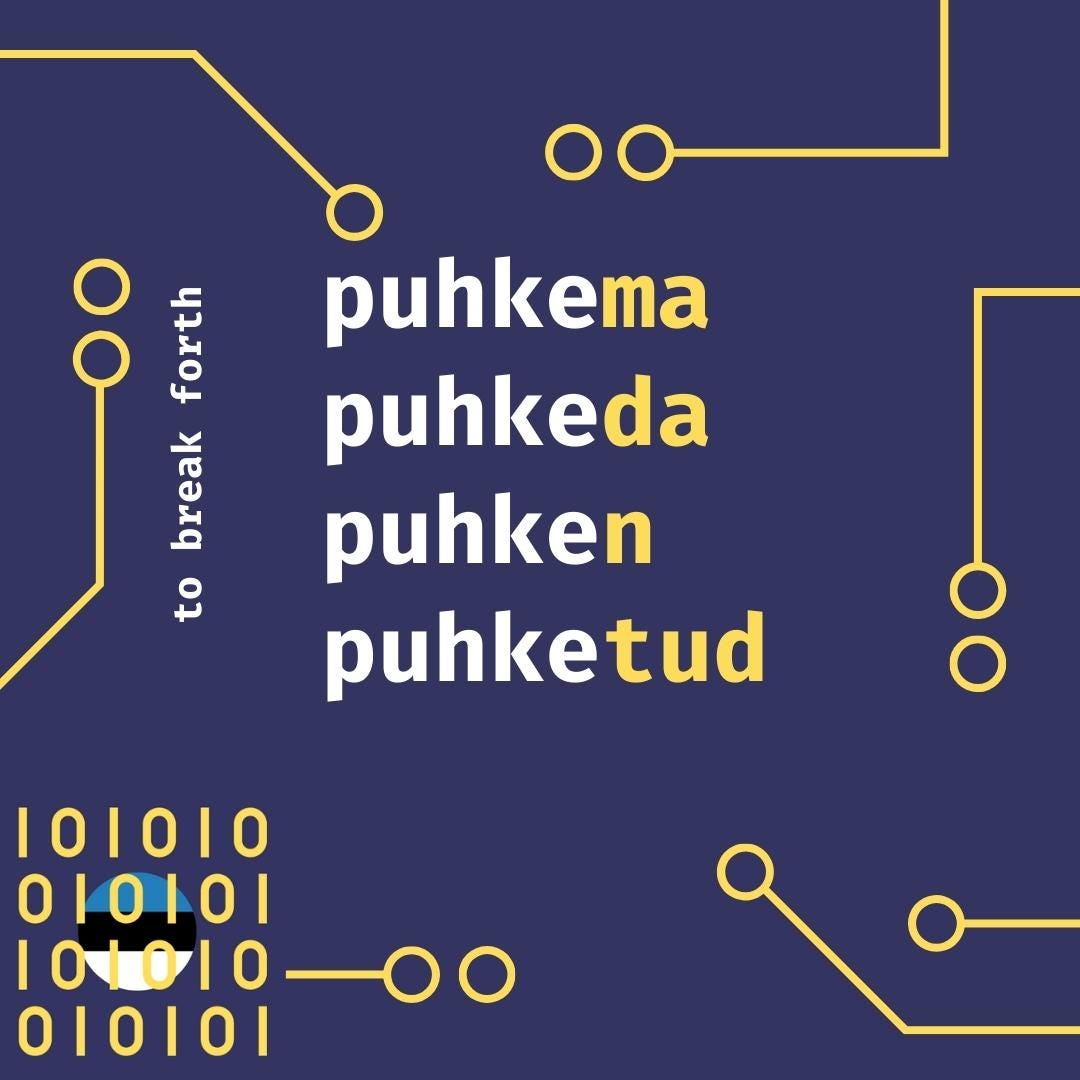Vocab: puhkema
to break out
to break forth, to blossom, to erupt, to flourish, to burst
Building blocks
It’s most likely derived from Proto-Finnic. In Finnish there is a similar word: puhjeta
How to use it
This verb behaves regularly: what breaks forth is in the Nominative case.
Examples
Sudaani pealinnas puhkesid eelmisel kuul ägedad lahingud
Literally: “Sudan’s in capital broke out on last month fierce battles”
Idiomatically: “Last month fierce battles broke out in the capital of Sudan”
Sudaani - Noun - Gen Sg, "Sudan's"
pealinnas - Noun - Inessive Sg, "in capital"
puhkesid - Verb - 3P Pl Past, "broke out"
eelmisel - Adjective - Adessive Sg, "on last"
kuul - Noun - Adessive Sg, "month"
ägedad - Adjective - Nom Pl, "fierce"
lahingud - Noun - Nom Pl, "battles"The phrase “õide puhkema” literally translates to: to burst into blossom. It can be used talking about flowers blossoming, but it’s also often used to talk about someone or something flourishing.
Kevadel puhkeb õide tuhandeid tulpe
Literally: “On Spring burst into blossom thousands tulips”
Idiomatically: “In Spring thousands of tulips blossom”
Kevadel - Noun - Adessive Sg, "On spring"
puhkeb - Verb - 3P Sg Present, "burst"
õide - Noun - Short Illative Sg, "into blossom"
tuhandeid - Numeral - Partitive Pl, "thousands"
tulpe - Noun - Partitive Pl, "tulips"Uus armastus puhkes õide
Literally: “New love burst into blossom”
Idiomatically: “New love flourished”
Uus - Adjective - Nom Sg, "New"
armastus - Noun - Nom Sg, "love"
puhkes - Verb - 3P Sg Past, "burst"
õide - Noun - Short Illative Sg, "into blossom"

